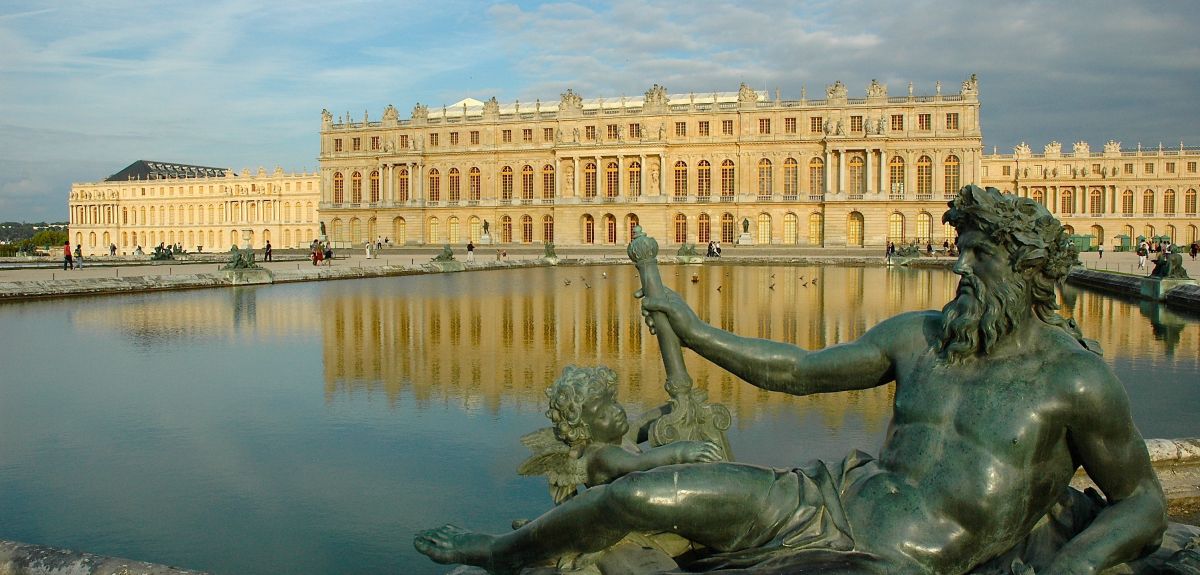
Gossip meets history in new BBC drama Versailles
A ten-part BBC drama focusing on the court of Louis XIV at the Palace of Versailles is underway.
The Daily Telegraph calls it "the BBC's new steamy period drama", though its co-creator David Wolstencroft has higher ambitions for the programme.
'Sometimes it takes a different context to shine a light on history,' he says.
Dr Alison Oliver, research editor at the Voltaire Foundation at Oxford University, gives Arts Blog a scholarly take on the new series:
‘Louis XIV was so magnificent in his court, as well as reign, that the least particulars of his private life seem to interest posterity.’
So wrote Voltaire in his account of the reign of Louis XIV, published in 1751. It’s still true today, apparently – a bit of a fuss has been made in the past few weeks about a BBC drama series called Versailles. Set during the reign of the French Sun King and controversially made in English, it seems to be aimed at the audience for the historical romp genre (The Tudors, Rome), with plenty of see-through dresses and glossy hair.
The show itself seems to be pretty much what you’d expect from the genre. Every lurid allegation of life at court which has surfaced over the past 300-odd years has been trussed up and ornamented, to choruses of ‘for shame!’ from the Daily Mail, while familiar faces on the media history circuit are produced to give academic credibility to every unlikely-sounding anecdote. An affair between the king and his sister-in-law? His brother’s homosexuality and transvestism? Queen Marie-Thérèse, famous for her Catholic piety and lack of interest in carnality, giving birth to a dark-skinned, apparently illegitimate baby?
The programme makers are playing a mischievous game with us: simultaneously wanting us to gasp in horror while reassuring us of their interest in historical veracity. No need to bother with plausibility, then – (alleged) truth despite its implausibility is the trump card here.
We have a rich supply of this gossip, partly because of the success of Louis XIV at keeping his nobility within the confines of his enormous palace at Versailles. Quite a few of them kept almost daily diaries detailing who was rumoured to be sleeping with whom, pregnancies, illnesses, squabbles…
Voltaire included several chapters of anecdotes in his Age of Louis XIV, which he introduces with the observation: ‘We had rather be informed of what passed in the cabinet of Augustus, than hear a full detail of the conquests of Attila or Tamerlane.’ And who wouldn’t? Voltaire’s chapters of anecdotes represent the private history of the king and his entourage as people, in contrast to the previous twenty-four chapters of public events: wars won and lost, peace treaties, alliances and so on.
Voltaire deliberately carves out a space in his monumental history of the reign for these ‘domestic details’, but he also warns the reader to weigh up the sources when deciding when something is true or not. Although he admits that they are ‘sure to engage public attention’, in a later edition he adds a marginal note at this point: ‘Beware of anecdotes’.
The real domestic details are ultimately unknowable, of course, but anyone can and does imagine what might have happened in a bedroom, a birthing chamber, a salon.
The temptation to fill in the gaps and invite a 21st century audience to experience this private space in simulation is, I think, what has proved so tantalising both to the creative impulses of the script-writers and the voyeuristic ones of the audience.